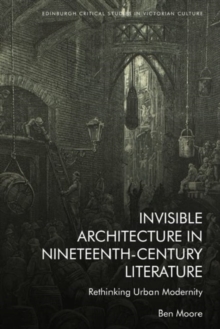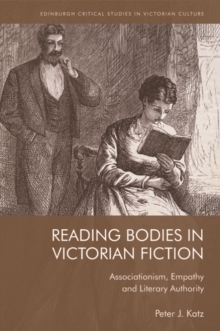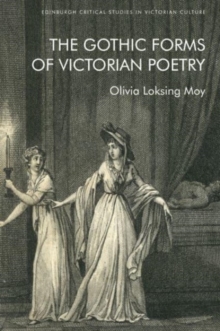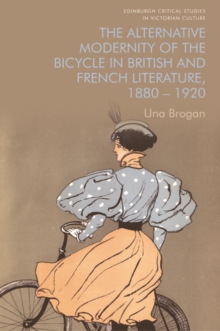
Plotting Disability in the Nineteenth-Century Novel Hardback
by Clare Walker Gore
Part of the Edinburgh Critical Studies in Victorian Culture series
Hardback
- Information
Description
Examines the significance of disability in nineteenth-century fiction Offers new insights into how disability shapes plot in nineteenth-century fictionInvestigates the impact of a developing social category on the form of the novel, opening up ways of thinking about the intersection between novelistic characterisation and categories of social organisation Offers new readings of well-known novels by major writers such as Dickens, Eliot and James and brings these texts into conversation with work by more marginalised figures such as Yonge and Craik, considering the relationship between canon formation and the representation of disability This book takes an exciting new approach to characterisation and plot in the Victorian novel, examining the vital narrative work performed by disabled characters.
It pdemonstrates the centrality of disability to the Victorian novel, demonstrating how attention to disability sheds new light on texts' arrangement and use of bodies.
It also argues that the representation of the disabled body shaped and signalled different generic traditions in nineteenth-century fiction.
This wide-ranging study offers new readings of major writers including Charles Dickens, Wilkie Collins, George Eliot and Henry James, as well as exploring lesser known writers such as Charlotte M.
Yonge and Dinah Mulock Craik.
Information
-
Available to Order - This title is available to order, with delivery expected within 2 weeks
- Format:Hardback
- Pages:208 pages, 4 Illustrations, black and white
- Publisher:Edinburgh University Press
- Publication Date:31/12/2019
- Category:
- ISBN:9781474455015
Other Formats
- Paperback / softback from £18.64
- EPUB from £72.25
Information
-
Available to Order - This title is available to order, with delivery expected within 2 weeks
- Format:Hardback
- Pages:208 pages, 4 Illustrations, black and white
- Publisher:Edinburgh University Press
- Publication Date:31/12/2019
- Category:
- ISBN:9781474455015



